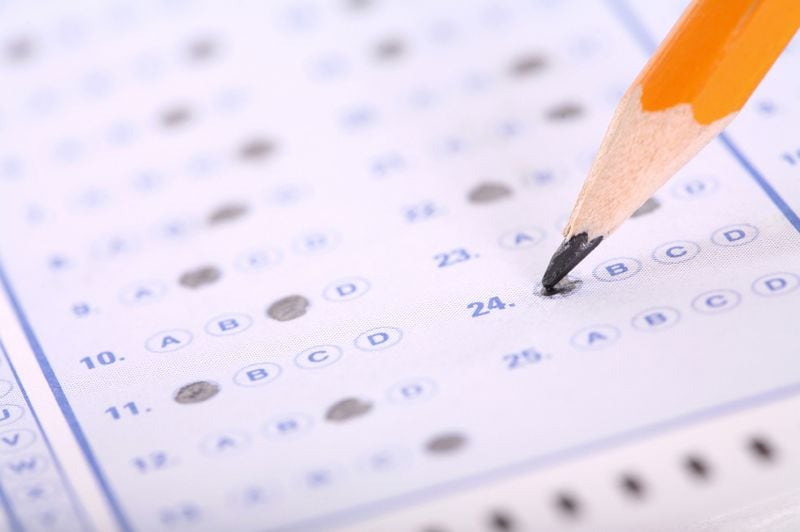In 2008, The Atlanta Journal Constitution began to look at what seemed to be improbable test score swings in Atlanta Public Schools. Using data analysis, the AJC concluded test tampering had likely occurred, prompting Gov. Sonny Perdue to order a sweeping review of test scores statewide in 2010.
When the results confirmed cheating in Atlanta, Perdue ordered an in-depth investigation, hiring two top prosecutors to lead the probe and using GBI agents to interview educators in schools where cheating was documented.
As a result of the findings, a Fulton County grand jury returned a racketeering indictment against the former Atlanta superintendent Beverly Hall and 34 other educators in March 2013. Twenty-one defendants eventually pleaded guilty. The others are in the midst of their trial now. Fighting terminal cancer, Hall did not go on trial. She died last week.
In 2012, the paper undertook an unprecedented data investigation, which found high concentrations of suspect math or reading scores in 69,000 public school systems from coast to coast. Since the 2012 “Cheating Our Children” series, the newspaper has continued to report on the Atlanta case and test integrity nationwide
The AJC asked for feedback about our coverage. Writer and professional speaker Gene Griessman offered his view. Author of "The Achievement Factors" and "The Words Lincoln Lived By," Griessman looks at the resulting turmoil and damage to the system's reputation.
I thought he raised points worth discussing and, with his permission, am sharing his comments.
By Gene Griessman
As the author of several books and two plays about Abraham Lincoln, I am the last person to tell journalists not to tell the truth.
But wisdom requires that the teller of truth take care how and when and to whom he tells it. We all know that telling the truth at the wrong time or to the wrong person or not telling all the truth can do great harm.
Credit: Maureen Downey
Credit: Maureen Downey
Though your writers and editors had good intentions, researched diligently and wrote well, your work has done harm. It may have done much good, too. But it has given racists new weapons, since the majority of test cheaters were black. It created a media frenzy. It led to an insane overreach by the judicial system. Racketeering!!! C'mon. Felonies!
And it created the impression all Atlanta public schools are worthless. Which makes it rather easy pickings for our governor who has already put on display his utter lack of judgment by his support of our universally mocked "Guns Everywhere" law.
It is a frightening thought to think this man who has been dogged by ethics questions and consumed by extremist ideology would have dictatorial powers over schools. (Who knows? If he takes over, all schoolchildren may be required to come to school armed!)
And the costs of dealing with the scandal you exposed! The millions in legal fees that could have gone for better things, like books and computers.
And the wreckage of careers. Could these teachers not have been disciplined, perhaps severely, and placed on probation like we do for other non-violent offenders?
Instead of helping the APS, as a result of the coverage, parents are more afraid than ever to send their children to Atlanta schools. Hence more flight.
I have a grandson in the Atlanta Public School system. His school is doing many things brilliantly. I have toured an all-black school that was remarkable. Spotless. Students wonderfully engaged and well behaved. One of the middle schools in northern Fulton is a model of diversity, a perennial state champion in several fields.
Maybe you have carried stories about these important accomplishments. But the public seems not aware of the good. Maybe good news is not news.
All the schools are being judged primarily by how they do on standardized tests. And how valid are the tests? How good are they at predicting success? And how do we measure success? And should public teachers be measured by how their students do on these tests if they accept special needs students, which many charters refuse to take, and have to keep unruly students, which many charters expel, thereby inflate charter school scores?
(There is a terrific overview of these issues in the March 5 issue of The New York Review of Books, pp. 8ff. Your journalists would profit from reading it.)
I know you may have touched on many or all of these topics -- I do not profess to have read every word -- but the message that we've heard is how very bad these educators are and how terrible the Atlanta school system is. If that was not your intent, that is what the public has gathered from your coverage.
Every good communicator knows that what is most important is not what you say but what the other person hears.
You may say a journalist is not responsible for what is heard. To a large extent that is true, but there are ways to increase the likelihood that what is heard is what was meant to be heard.







